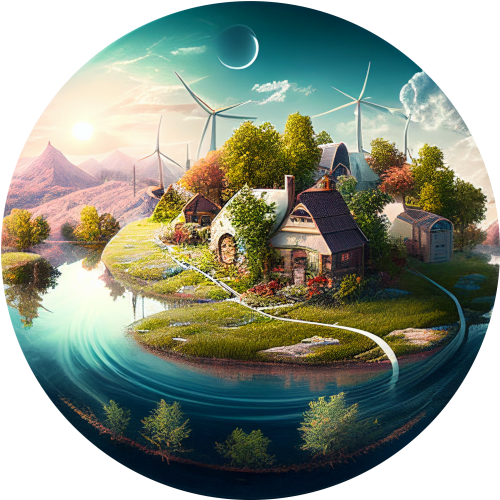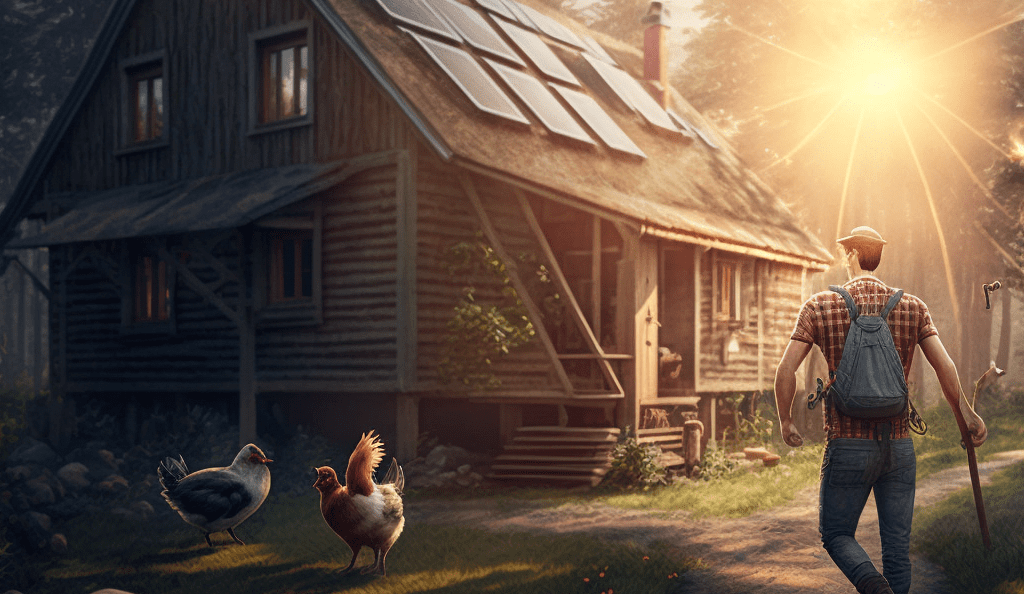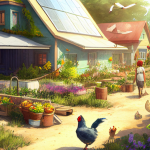Self-sufficiency and sustainable living go hand in hand. When we become more self-sufficient, we are able to reduce our dependence on external resources and make a positive impact on the environment. By growing our own food, generating our own energy, and reducing our consumption, we can reduce our carbon footprint and make a positive impact on the planet.
The Importance of Autonomy
Being self-sufficient means having the ability to take care of oneself and one’s family without relying on external resources. This autonomy is not only important for personal well-being, but also for the well-being of the planet. When we are able to provide for our basic needs, we are less reliant on external resources and systems that may not always be available or sustainable.
Additionally, autonomy allows us to take control of our own lives and make choices that align with our values. It gives us the power to make decisions that are not only good for ourselves, but also for the planet. By becoming more self-sufficient, we are able to make a positive impact on the environment and live in a way that is more authentic to our values.
Growing Your Own Food
One of the most important aspects of self-sufficiency is growing your own food. When we grow our own food, we are able to reduce our dependence on the industrial food system, which is a major contributor to environmental degradation. By gardening, we can reduce our carbon footprint, increase our access to fresh and healthy food, and learn valuable skills that can be passed down to future generations.
Growing your own food also means being able to control what goes into your food and how it is grown. This can include using sustainable farming practices, choosing organic seeds, and avoiding pesticides and other harmful chemicals. By growing our own food, we can ensure that it is healthy for ourselves and the environment. Furthermore, it can also be a great way to connect with nature and to learn about the cycles of life.
Generating Your Own Energy
Another important aspect of self-sufficiency is generating your own energy. This can include installing solar panels, wind turbines, and other forms of clean energy. By generating our own energy, we can reduce our dependence on fossil fuels, which are a major contributor to climate change. Additionally, by generating our own energy, we can reduce our energy bills and become more financially independent.
Moreover, generating your own energy also means being in control of your energy source and being able to generate it sustainably. This can include using renewable energy sources, such as solar and wind power, which have a much lower environmental impact compared to fossil fuels. Additionally, by generating your own energy, you can also be more resilient, by not relying on external energy sources, which can be subject to disruption or scarcity.
Reducing Consumption
Self-sufficiency also means reducing our consumption. By consuming less, we are able to reduce our dependence on external resources and make a positive impact on the environment. This can include reducing our consumption of meat, using reusable bags and water bottles, and buying locally-sourced products. By consuming less, we can also reduce our carbon footprint and our waste, which will have a positive impact on the environment.
Reducing our consumption also means being more mindful of our choices, and choosing products that are more sustainable and have a lower environmental impact. This can include choosing products made from sustainable materials, choosing products that are not packaged in unnecessary packaging and choosing products that are made locally. By being more mindful of our choices, we can also support more sustainable and responsible businesses.
The Importance of Learning Skills and Doing it Yourself
Self-sufficiency is not only about being able to provide for one’s basic needs, but also about having the knowledge and skills to do so. By learning how to grow our own food, generate our own energy, and repair our own possessions, we become more autonomous and independent. Additionally, by learning these skills, we are able to pass them down to future generations, ensuring that they have the knowledge and tools to live sustainably.
Moreover, being able to do it yourself is crucial for being able to adapt to any situation. It allows you to be more resilient, by not relying on external resources when they are not available, it also allows you to be more creative, by finding solutions to problems using the skills and knowledge you have. In a sustainable life, being able to do it yourself is a key aspect that should not be overlooked.
Educating ourselves on sustainable living is also important. Understanding the impact of our actions on the environment and learning about the alternatives that are available to us is crucial in making informed choices. By educating ourselves, we can make better decisions and take actions that are more beneficial for the environment and for ourselves.
Self-sufficiency and sustainable living are closely connected. When we become more self-sufficient, we are able to reduce our dependence on external resources and make a positive impact on the environment. By growing our own food, generating our own energy, and reducing our consumption, we can make a positive impact on the planet and become more autonomous and self-sufficient.



